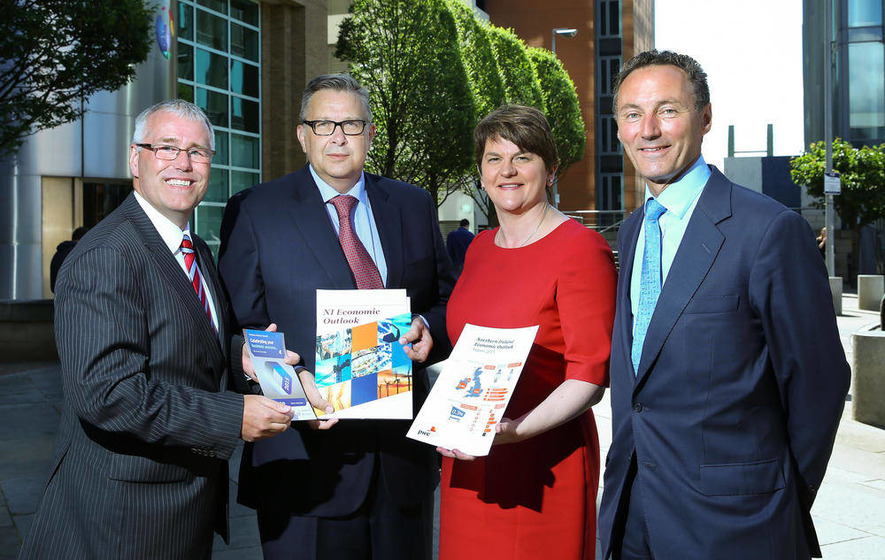Engagement Between Private And Public Sectors ‘Key To Economic Growth’
Engagement between the north’s private and public sectors is crucial for economic growth, vice chair of CBI Northern Ireland, David Gavaghan, told a briefing of business leaders yesterday.
More than 100 captains of industry attended the meeting in Belfast’s Hilton Hotel with finance minister Arlene Foster to discuss how the two sectors could better unite in facing current key economic challenges.
Among the speakers were Paul Terrington, regional chairman at PwC, and Richard Donnan, new head of Ulster Bank in Northern Ireland, who also voiced the need for a more ‘joined-up approach’ which would help increase competitiveness and productivity.
With private enterprise “at the heart of the transformation of the economy”, Mr Gavaghan warned there had never been a greater need for local ministers to engage with the business community in Northern Ireland.
“CBI greatly welcomes today’s constructive meeting with the Minister of Finance,” he said.
“Through a meaningful engagement between business leaders and locally elected representatives, we must together provide the leadership to create a more sustainable economy which delivers opportunities for everyone.
“We recognise the critical importance of putting the region’s public finances on a sustainable footing and the imperative for us all to operate within our financial means.
“Critical decisions need to be taken by our political representatives in the next few weeks, otherwise we are in danger of undermining our much needed recovery.”
Welcoming the Minister’s commitment to improving the competitiveness of the public and private sectors, Mr Terrington said there was a need to “maintain conversations” between ministers and the business community, while investigating how the region could be made for attractive for international investors.
“So far this year we’ve had a general election, a summer budget, and UK productivity plan and in a few weeks the executive will submit proposals that will be incorporated in November’s spending review – a review that will take a further £20 billion out of UK public spending,” he said.
“Much of the political focus in Northern Ireland is around the distribution of public money rather than on the productivity gains that can make our businesses internationally competitive and our location internationally attractive.
“Addressing modernisation, productivity and service delivery across the public and private sectors will start a process that can deliver improved wages, sustainable employment and the increased added-value that will generate much-needed tax revenues.”
Ulster Bank’s Mr Donnan said it was now imperative that Northern Ireland ensured its economy was capable of adapting to the “changing dynamics within the UK” as Westminster focused on devolving more fiscal powers to Scotland, Wales and the north of England.
“The rapid bulk of technological development poses challenges but also opportunities for improved productivity, competitiveness and improved service delivery in the private sector and public sector,” he said.
“In this context, Northern Ireland will need to adapt its economy to thrive. That will mean political and business leaders taking brave decisions.”
Meanwhile, Mrs Foster confirmed that growing the economy remained the Executive’s “number one priority” and securing the devolution of corporation tax powers was top of that agenda.
“Members will be all too aware of the critical stage we have reached in Northern Ireland’s public finances,” she added.
“It is now absolutely crucial for our economic prospects that all parties follow through on implementing the Stormont House Agreement, including the key issue of Welfare Reform.”
Source: irishnews.com




